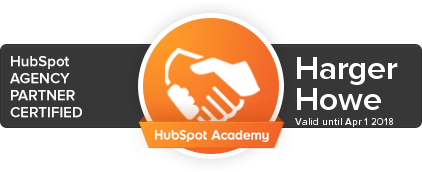Have you ever received an email from a sender whose list you may have signed up for years back that you automatically deleted? Have you ever been forced to click an ad that was irrelevant to you in order to access relevant career search information? Have you ever heard from a recruiter that didn’t introduce themselves at all, whose company you had never heard of send you a form letter in your Linkedin inbox? Of course you have! That’s what outbound recruitment marketing looks and feels like. Inbound recruitment marketing is about the candidate, not about the employer. Don’t get us wrong, inbound still makes it possible for the candidate to learn about a company, but it does so in a nurturing way as opposed to a more aggressive one.
With the new age of informed candidates, it is crucial that companies adopt an inbound recruitment marketing strategy to supplement their job board postings. While more traditional advertising still works, it doesn’t hit a distinct portion of candidates who are often part of the top talent sector. Those passive candidates will never see your job board postings because while they may be interested in being approached at some point, right now their current career choice is going okay. Sure, it could be better, but searching for a job is a lot of work and only truly move-minded motivated individuals are participating in that effort.
Read on to find out how you can use inbound recruitment marketing to take your recruitment strategy to the next level.
Personas
Before you start to recruit it is imperative that you realize who your ideal candidate is. That’s why we think it is crucial to create personas. Hubspot defines a persona as, “a representation of your ideal customer based on market research and real data about your existing customers.” Consider ideal candidates of from the past (they’re probably your hires!) and consider what qualities you’d want in potential new candidates. Consider where they live digitally, are they searching for article on Reddit? Are they more of a Linkedin user? What will reach them? These are questions that will help you generate the right profile for your persona and ultimately will help you target them correctly with inbound recruitment marketing efforts.
Blogging
You’ve heard it before, but blogging is crucial to a keyword strategy. If you want to be found by passive candidates via organic search you must harness this power. You can be the best company ever and if candidates can’t find you, they won’t know it. The best way to get in front of these candidates is to generate a list of things that your ideal candidate might be looking for at various stages in their job search (and remember to phrase the keywords like they would in a typical search). The stages, which were created by Hubspot (the Buyer’s Journey) include:
- Awareness
- Consideration
- Decision
So why is this important to keywords and blogging? Well, it’s because you need to put yourself in the place of your ideal candidate in all three stages in order to recruit them in an inbound way.
For instance, in the Awareness stage you may choose a keyword in your blogs and content like: Primary Care Careers. In the Consideration stage, you might choose Primary Care Careers in New England. Finally, in the decision stage, you might use a keyword like: Primary Care Careers at YOUR HOSPITAL. Once you’ve isolated these keywords and made a plan to use them within your blogs it becomes much easier to reach your ideal candidate audience and then move towards hiring them.
Content
While keyword optimization is key (jokes aside) to organic search, the content you are driving them toward is just as important and should also be based around the journey. It should be relevant, helpful and interesting!
While recruitment marketing to passive candidates is primarily about the Awareness stage and the conversion is generally them applying, it is important to consider all the stages that move a candidate towards an application. Perhaps a doctor is interested in relocating, but has one year left on their contract. They still can convert by downloading relevant content and then you can remarket to them later with helpful information that you know they’ll love! That’s the inbound way.
Remarketing
Maybe a candidate wasn’t right for a particular role, that doesn’t mean they’re a bad candidate for another! Consider Nurse Practitioners. It’s hard to reach them (it’s a fact). Just imagine if you had a database of all the applicants that have not only applied, but also passive candidates who are just looking into careers in a certain area? You could remarket to them, you could send them relevant content, you can add value to their career search! Strive to add value and you will succeed.
--
Ultimately inbound recruitment marketing is about providing the right candidate with the most helpful information available at the correct time. Not everyone is ready to hit apply, but by increasing your awareness and providing value you will earn more applicants than your competitors. Content plus context, it’s what it’s all about!











